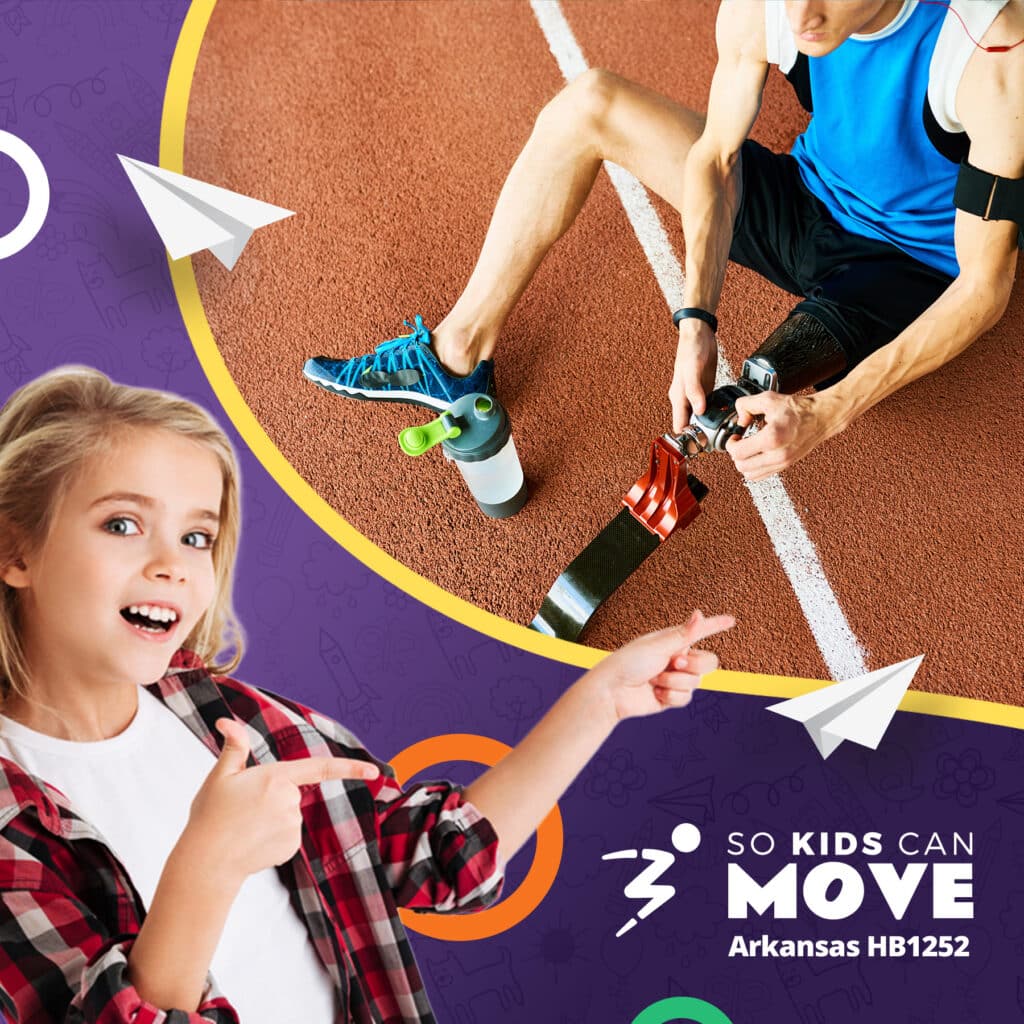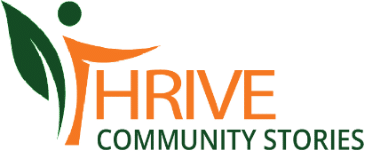ARKANSAS PASSES SO KIDS CAN MOVE LEGISLATION
 We are happy to announce that on April 5, 2023, Arkansas HB1252 passed the state Senate 30-1. Arkansas HB1252 is legislation that aligns with the “So Kids Can Move” (SKCM) insurance fairness bill, like New Mexico’s, “So New Mexicans Can Move” recently signed by Governor Michelle Lujan Grisham, April 6, 2023. HB1252 seeks “to modify the Arkansas Health Care Consumer Act; and to require coverage for prosthetic devices for athletics or recreation and prosthetic devices for showering or bathing.” It is worth noting, there was one key amendment in the Arkansas HB1252 bill limiting the coverage of recreational prostheses to only K-3 and K-4 level individuals. The bill is currently pending Governor Sarah Huckabee Sanders’ signature.
We are happy to announce that on April 5, 2023, Arkansas HB1252 passed the state Senate 30-1. Arkansas HB1252 is legislation that aligns with the “So Kids Can Move” (SKCM) insurance fairness bill, like New Mexico’s, “So New Mexicans Can Move” recently signed by Governor Michelle Lujan Grisham, April 6, 2023. HB1252 seeks “to modify the Arkansas Health Care Consumer Act; and to require coverage for prosthetic devices for athletics or recreation and prosthetic devices for showering or bathing.” It is worth noting, there was one key amendment in the Arkansas HB1252 bill limiting the coverage of recreational prostheses to only K-3 and K-4 level individuals. The bill is currently pending Governor Sarah Huckabee Sanders’ signature.
GAINING MOMENTUM
The movement for prosthetic access is growing! Across states and ideological divides, legislation aligned with the So Kids Can Move campaign has found favor with lawmakers.
- Arkansas passed the state house with a 95-0 vote count (The original version passed 89-7 on March 27.)
- Colorado recently passed SKCM at the House 62-1 and is pending Senate vote on April 26th.
- Illinois passed unanimously at the Senate after several amendments and is currently pending at the House level.
- New Mexico passed unanimously at the House and Senate.
The overwhelming majorities in these vote counts demonstrate the strength of grassroots advocacy efforts led by state constituents and organizations, such as the American Orthotic & Prosthetic Association, the National Association for the Advancement of Orthotics and Prosthetics and the American Academy of Orthotists and Prosthetists.
PHYSICAL ACTIVITY & SOCIAL CONNECTEDNESS
State legislators understand that physical activity and social participation are essential components of a healthy lifestyle for all. Defined by several measures of social isolation, satisfaction with social activities, and perceptions of loneliness. Better social connectedness, in turn, is associated with better mental and physical health as well as a longer life.
Social connectedness must be recognized as a factor in overall health for people with disabilities; service providers, medical professionals, and legislators should consider this facet of people’s lives as much as they consider other demographics and social determinants of health. To the extent that social and medical service providers support and recommend exercise and other preventive health measures, they should also support opportunities for social interactions and connections. Social connectedness begins as youth with play and transcends into adulthood with mobility and transition. For people with limb loss or limb difference, social physical activity can be made accessible by ensuring equitable access to the most optimal recreational prostheses and orthoses.
WHAT CAN I DO?
The movement for equitable prosthetic access is growing! Regardless of your connection to the limb loss and limb difference community, we want you to be an advocate! Learn about our Lead Advocate program on the Amputee Coalition’s website.
If you are interested in becoming a volunteer for the Coalition, please contact the Coalition’s volunteer coordinator at 888-267-5669, ext. 8124, or at volunteer@amputee-coalition.org.

